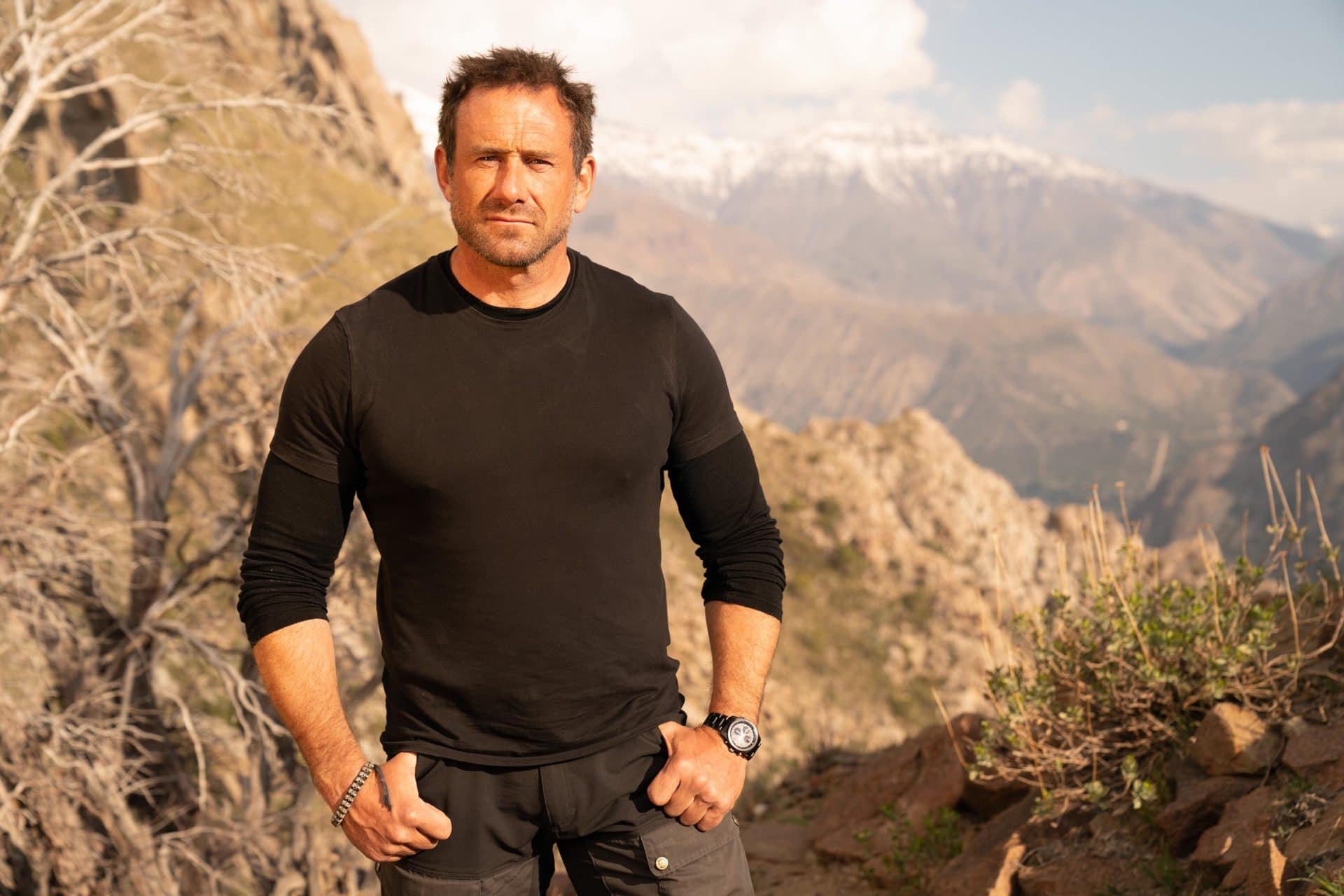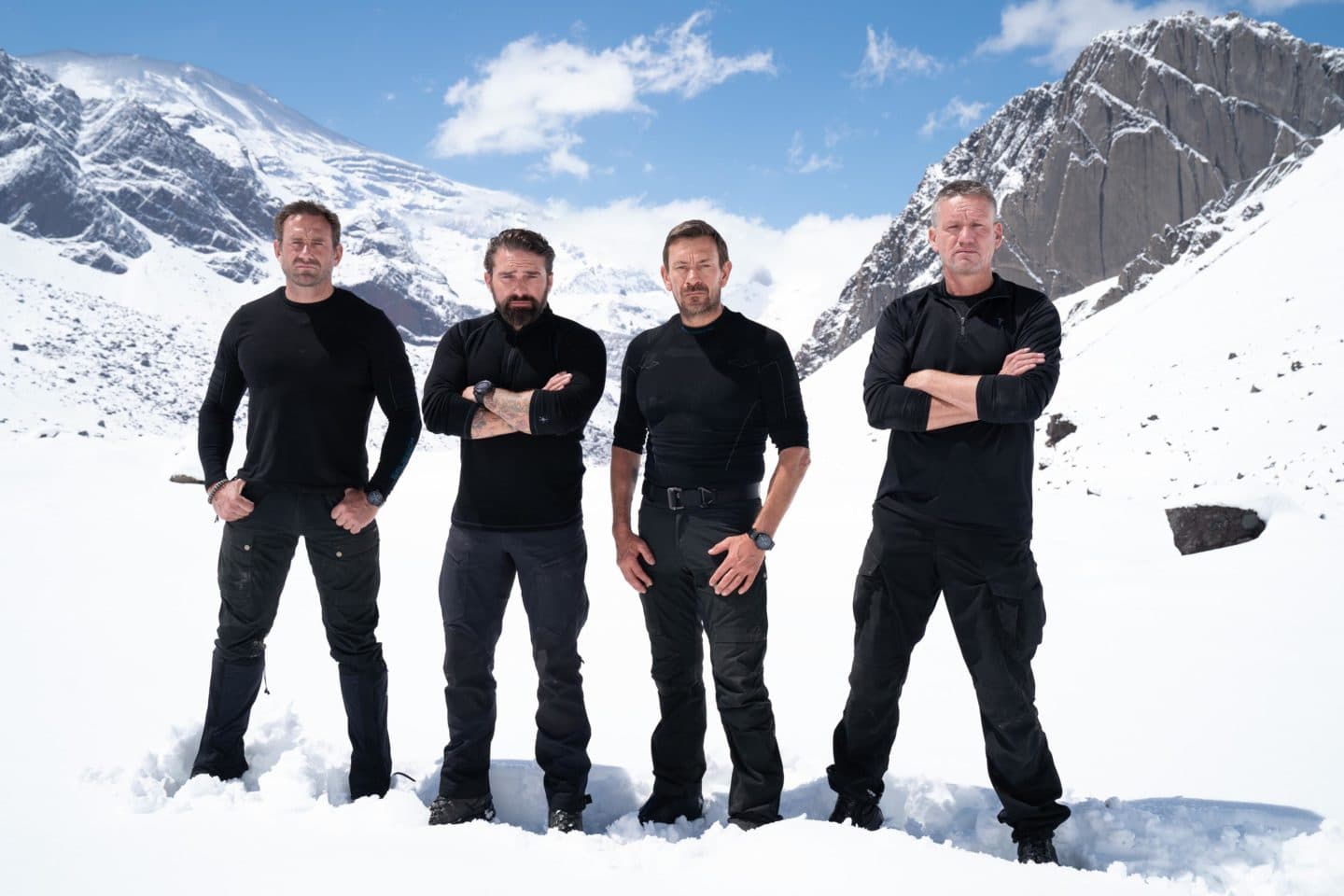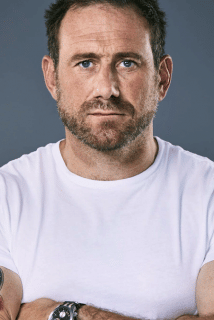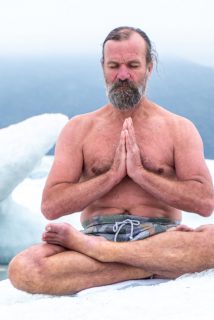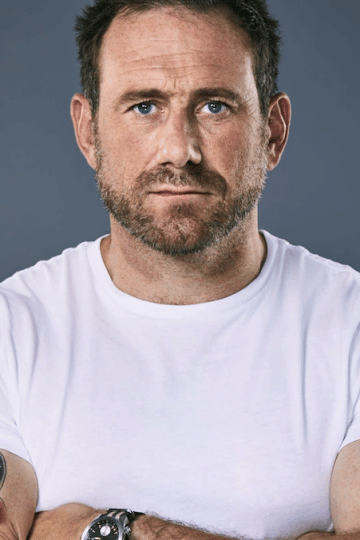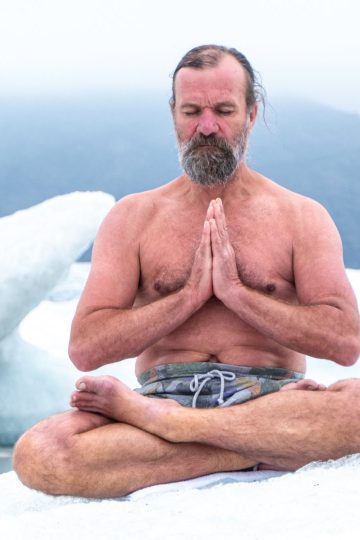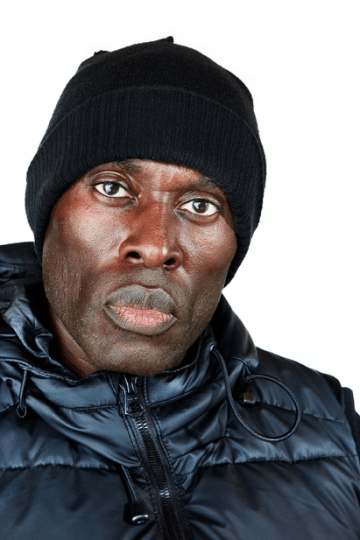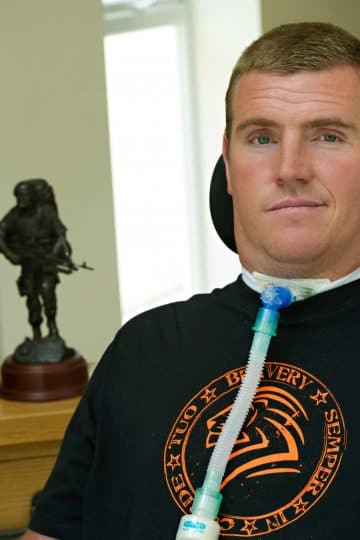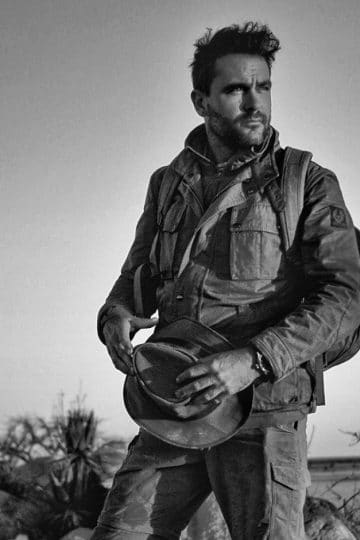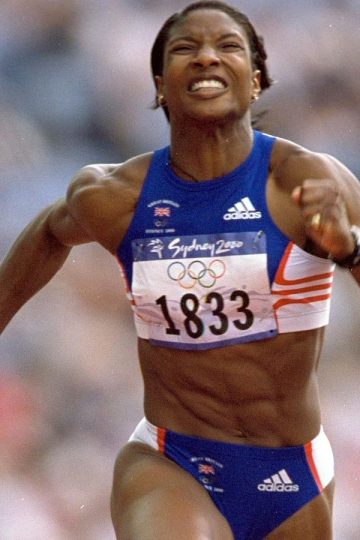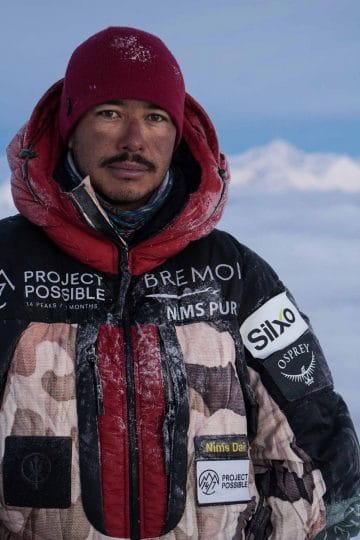Jason Fox on Resilience
Jason Fox
As the new series of 'SAS: Who Dares Wins' begins, Foxy’s column this week is all about resilience. What it is, how to get it, and how it's tested on the show.
Resilience is important. There’s physical robustness which you can build up, where you condition your body to deal with things, but the same can also be said for mental resilience, you can build it up with experiences over time.
A lot of it this is about being honest with yourself and achieving a level of emotional awareness. In other words, to be emotionally resilient you need to understand your emotions and why they occur, so you can then deal with the problem at hand or the situation you find yourself in and manage it appropriately.
It’s basically about personal development. Resilience comes with you wanting to develop and push yourself and take those leaps of faith. But more than anything it’s do with that honesty within yourself. If you acknowledge your emotions you become resilient because you can acknowledge things you are finding mentally hard, or when you’re feeling down. If you can acknowledge the fact you’re down, then you’re able to see the situation in a different light. You can work out how to get through those moments when you’re feeling down, fearful, sad, angry, whatever it is.
The process is acknowledgement, understanding yourself and then moving forward.
Resilience is not about just cracking on regardless of your problems. People do think that. But to be able really crack on – say if the situation wasn’t going to change because of various factors – resilience is about acknowledging that. Looking at your feelings that go with that situation and then looking at how you manage it. It’s not about ignoring it, because to ignore it you’re not really understanding how you’re getting through it or what’s happening to you.
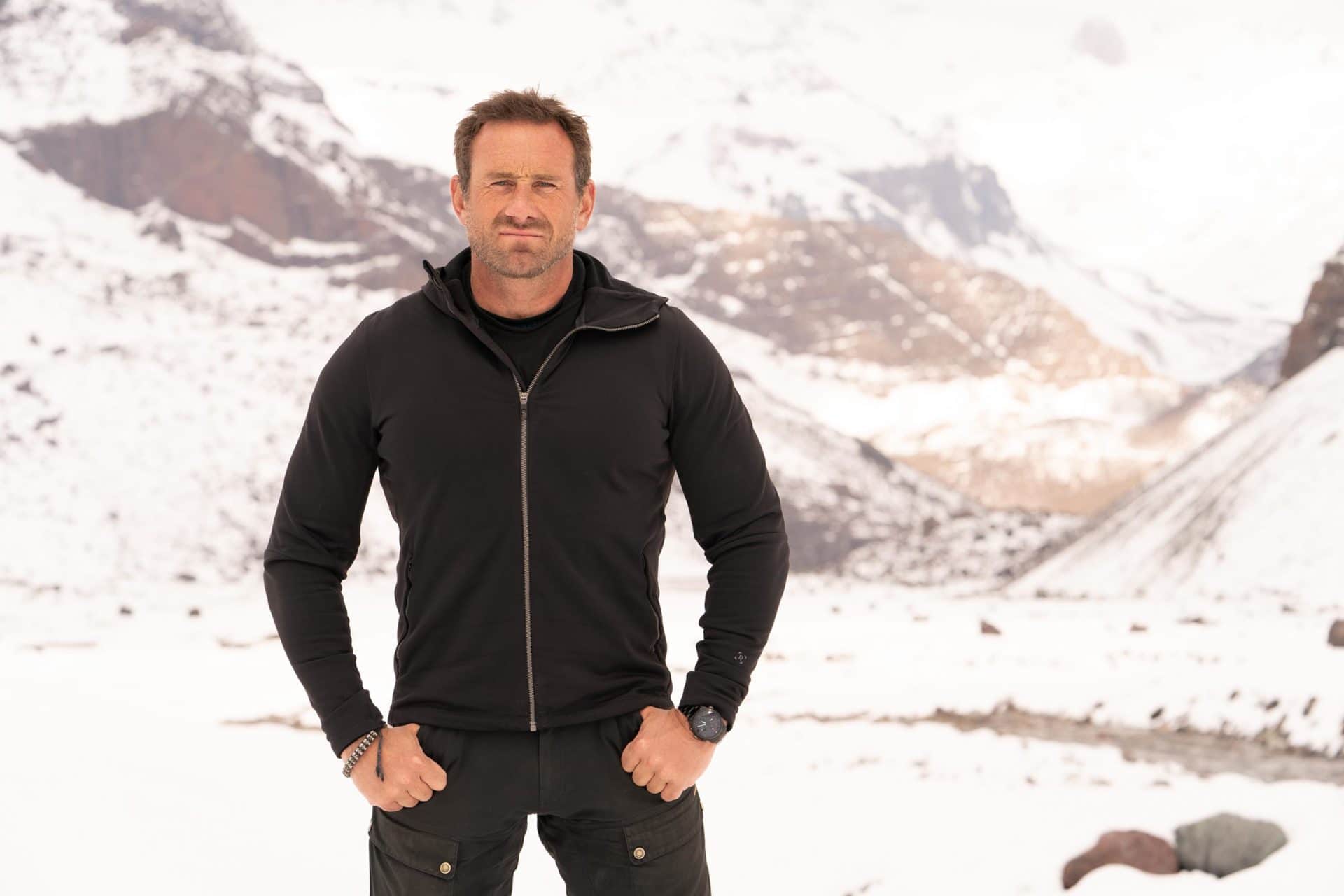
Special Forces resilience
The resilience aspect of Special Forces is subconsciously in there because in training you’re constantly going over the same thing again and again. You’re trained for lots of different situations, lots of different outcomes, lots of variants of a plan.
What the training also does is give you a memory bank of situations that have gone right, wrong, and everything in between. So when things do go wrong in the real world, you have a practical reference that you can call upon and can use in a flexible way to then work out the best way through a situation.
That happens physically, practically, but it is also happening mentally because when you’re in those situations in a training environment you’re feeling certain ways about something and also understanding what that means and how you get through it as an individual, internally.
You’re not trained to be resilient. What they do is train you for a certain situation so that you automatically, subconsciously, become resilient.
A saying that’s bandied around the military is ‘Knowledge dispels fear.’ The more knowledgeable about something you are the less you’re going to be fearful of it, because you’re aware.
The more of that you build up, the better. This means that even if the situation goes awry in a way you hadn’t experienced before, you’ve got enough knowledge as a base to call upon to work your way out of a situation, whether its physical or psychological.
Personally, there’s times where I’ve had to properly acknowledge fear because it has manifested in a way that has brought up old memories. When I’ve been lying in a ditch getting shot at and thinking, ‘Oh my god, I’m absolutely petrified, I want to be at home,” and felt like a ten year old boy. I had to stop and acknowledge things: “I’m an older person, I’m probably a lot more aware of my fragility.” The resilience there was to acknowledge that emotion, that intense fear, and then take stock. Take confidence from myself, looking at myself and realising I’m in a position for a reason – I’m good at what I do – and then also taking confidence from the team around me. That in turn led me to be resilient in that situation.
Resilience in SAS: Who Dares Wins
The recruits we have on the show are there for a multitude of reasons. Whether it’s to challenge themselves, prove a point or just to see if they’re up to doing something akin to what we used to do in the Special Forces. To begin with we put them into physically strenuous situations, and then after that we try to dig into their psyches. It’s all tailored to the individual – each different person dictates what it is that we do and how we do it. But physical strain, lack of sleep, lack of food, drains the energy levels, and that coupled to us giving them a bit of stick, does test their character and tests how resilient they really are. Actually, a lot the people who are on it see their resilience develops as they go along. They really learn a lot about themselves.
We drill down into them as people, getting to their know them and their motivations. The first phase of the show is to see what their characters are like and who they are, and then you can apply the real pressure to see how resilient they really are, or at least teach them to see how resilient they can be.
Human stories are at the heart of the show. Everyone has difficult stories. For this new season 4 there was an abundance of people with dark stories who have been in some pretty horrendous situations and are probably still suffering from it. I think many of them wanted to know what it was that got them through those horrible situations using the tests we put them through. They’re often resilient characters in their own right but sometimes they don’t realise it until they get put to the test in a different arena.
I quite enjoy digging into people and finding a bit about them. Not in a horrible way. I prefer to be the person that’s just sat there finding out about someone and just being interested in the story they have to tell.
Resilience on set
The DS tend to go back to being lads away when we’re filming, we do have a laugh, and wind each other up. And there’s always a few heated moments between us because we live in close proximity, audio recorded and filmed the whole time. It takes its toll but generally we do have a really good laugh.
The location for this season was in the Andes in Chile, different to the hot environments we’ve done in the past. It was stunning, awesome to look at, but very rugged terrain, mountainous. It’s very chilly up in the Andes – when you go above the snow line you’re into a glacier, which is freezing.
However, the biggest challenge was really the altitude. We were living at 2500 metres and going up to just over 3000 metres during different tasks and exercises. The lack of oxygen really does takes its toll. You feel absolutely rinsed. You can barely breathe when you move, its hard work.
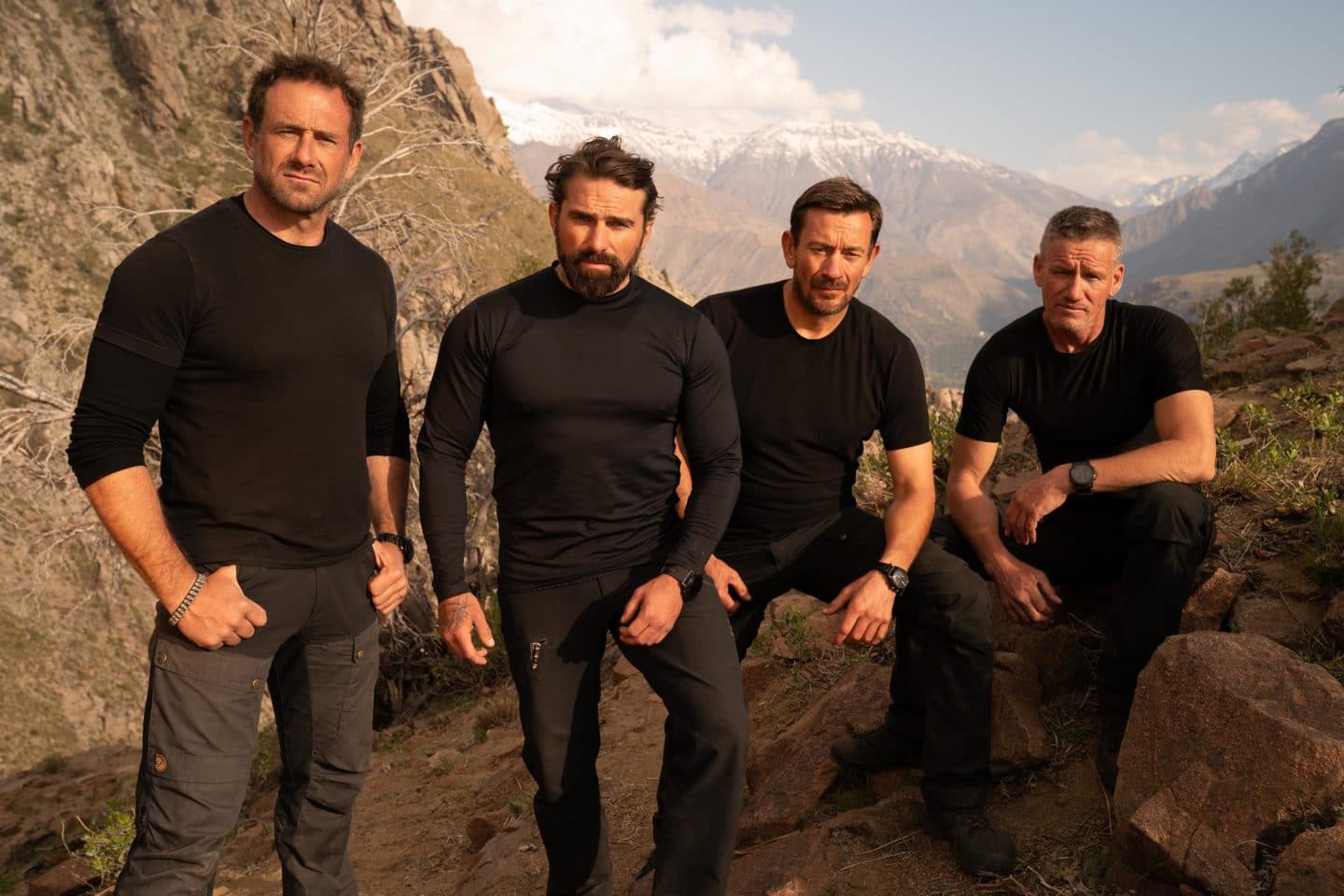
Women vs Men
Women are on the show for the first time, and it did produce a different dynamic to a certain degree because we had to think how we were going to treat them. But actually we had a chat, and realised it’s not really about whether women can do it, we’re not interested in that. It’s about whether someone, an individual, can do it. We put aside all the gender differences and concentrated on 25 people and whether they had the minerals to get to the end of that course.
It was probably more of a deal before we started shooting, but once we started shooting and we decided to be normal and treat everyone the same, gender shouldn’t really come into it. That said, there were some things that were difficult because society has taught us to think in a certain way. So we had the recruits sparring and had men and women sparring against each other. That was awkward to watch, actually – it wasn’t that it was difficult it was simply awkward. We wanted them to commit to it, as you can’t choose your enemy, but it was still a big question to pose and when you’re watching some girl getting whacked around the face by a big bloke, it’s a bit unnerving. But then likewise there were some girls really getting stuck into the men and that’s was a difficult pride thing for some of the blokes to deal with.
We never answered the questions of whether women can do things the same as men, we just posed the questions on a public platform. The questions will go on for a long time, we had them for 12 days and that really isn’t long enough to dig deep into the weeds of it and have the question answered.
Are celebrities less resilient?
We have a celebrity special this year. We enjoyed that! Some were less resilient than the normal recruits, some were more resilient. There were a few people on there who were absolute warriors.
Having celebrities did make for a slightly different dynamic. Physically and mentally we still tested them to the same degree but we loosened up quicker than the normal ones, we were a bit more jovial. Of course we still put them under serious pressure and gave them what for, but there was a more common joviality to it. Quite simply, we wanted to keep them in longer because the special is in aid of Stand Up To Cancer, and it’s all about their stories and the more people watch it, the more money we can make for Stand Up To Cancer.
New Year resilience
Everyone loves to wipe the slate clean after New Year, but the best thing to do is not to overthink anything that might be looming in the future, and just enter everything living in the Now.
Be honest with your emotions, understand your emotions, acknowledge them, allow them their space. Look for a way to manage them when they do spring up and use them to help you move on with whatever it is you want to do in life.
Season 4 of SAS: Who Dares Wins starts 6th January on Channel 4 at 9pm.

Read Jason Fox first
Sign up to our daily newsletters to read Foxy's column before anyone else, and for the best of The Book of Man.
Trending
Culture 6 days ago
Relationships 3 days ago
Mental Health 2 days ago
Mental Health 10 hours ago
Culture 44 minutes ago

Join The Book of Man
Sign up to our daily newsletters to join the frontline of the revolution in masculinity.



